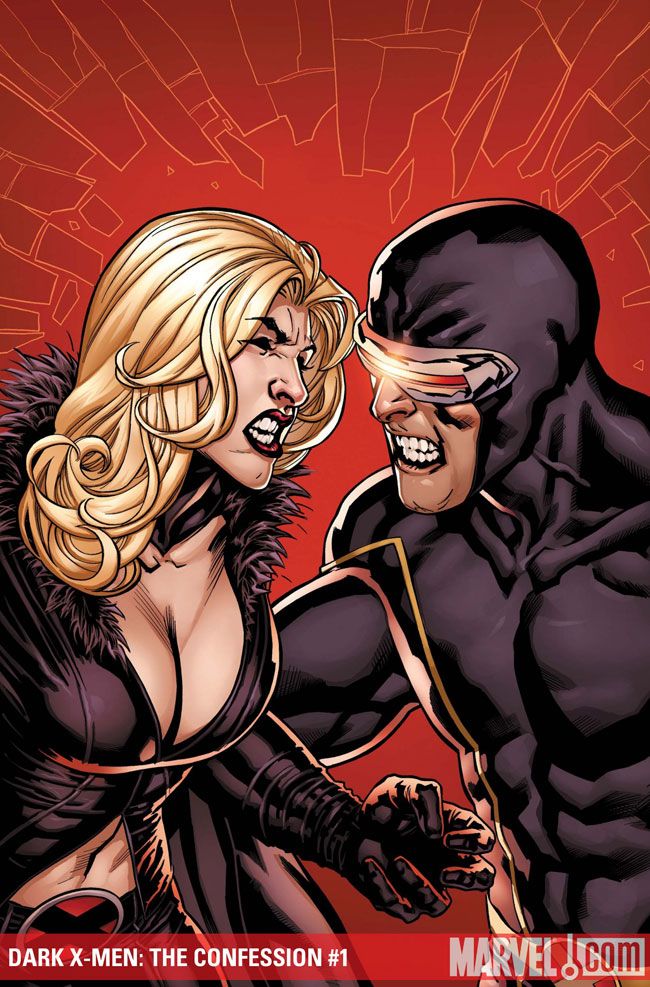Reading the opening pages of this issue, you might be struck with the feeling that you've read it before. This is the third time we've seen this exact conversation in a comic, and only the first time we've seen the end of it. The fact that we've gone so long without seeing the end could make you wonder, realistically, whether it's actually that important anyway.
And you'd be right to. All we really get is the conclusion to some of Fraction's "Uncanny X-Men" sub-plots, which were already implicitly resolved. We already know that Emma's betrayal during the events of "Utopia" was a mutual fake-out, so if you want to see the conversation where Emma and Scott finally open up to one another and admit their double-dealings, this is the place -- but new developments? Not so much.
Annoyingly, the issue also manages to fall into exactly the same trap as 90% of Marvel comics published with the words "Dark" somewhere on the cover, and contains a character professing their intentions to Kill Norman Osborn. Given the number of people who have tried, or tried to try, it'd be nice to see someone actually get halfway close to doing so. Emma's failure is particularly spectacular simply because she barely makes it out of the front door before giving up.
But to be honest, the issue has bigger problems. For a start, it feels a little misplaced. The confessions being discussed had substantial build-up throughout Fraction's run on Uncanny, but for some reason, are being dealt with in a satellite one-shot with the name of what is essentially a different team on the cover. One can only wonder what editorial thought process was. Surely, this would've made far more sense as a "Utopia" epilogue in "Uncanny X-Men?"
It's also a problem that Cyclops and Frost have almost no chemistry in this issue. The final page exemplifies exactly how painfully confused their relationship dynamic has become, as Cyclops sweeps Frost in his arms while she swoons. Without wanting to get too deep into over-possessive nerd territory, that's not really how their relationship has ever worked, and it's not clear where the creators got the impression that Emma was just another self-doubting, weak-willed woman who needs male validation to feel good about herself. This isn't character development, it's character dilution.
Given that the writers are two usually-competent X-Men staples, it's a surprise to see the art being the most competent part of the book. At times, Bing Cansino's pencils resemble a cross between Terry Dodson and Greg Land, so the tone is immediately X-Men appropriate. It's a welcome effort in what is, in fairness, a difficult story to illustrate given that it's mostly monologues.
Sadly, despite all the trails and build-up, the contents of "Dark X-Men: The Confession" really fail to deliver on almost every level. After reading this, I don't feel like I understand the characters any better, nor does it reveal anything about the events of "Utopia" that weren't already clear. The issue itself doesn't even really have a confession -- the characters mutually admit their shady dealings, but it's not as revelatory as the name suggests, nor even as its quasi-counterpart "Civil War: The Confession" was. As an X-Men fan, I want to like it, but as a critic, I can't bring myself to.

